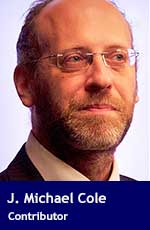 Hong Kong as we knew it – more open, more liberal – is no more. With its demise, the “one country, two systems” formula, under which the former British colony was incorporated into the People’s Republic of China in 1997, has also collapsed. Whatever the foundations of this political construct may have been, there is now little doubt that the whole affair was based on illusions, of a belief that a free society on the peripheries of the centre of gravity could be reconciled with the latter’s inherently authoritarian mentality.
Hong Kong as we knew it – more open, more liberal – is no more. With its demise, the “one country, two systems” formula, under which the former British colony was incorporated into the People’s Republic of China in 1997, has also collapsed. Whatever the foundations of this political construct may have been, there is now little doubt that the whole affair was based on illusions, of a belief that a free society on the peripheries of the centre of gravity could be reconciled with the latter’s inherently authoritarian mentality.
During the negotiations that preceded retrocession and for years afterwards, Hong Kong served a mostly utilitarian role for Beijing as a gateway between China proper and the international community. It also helped sustain the illusion that, having demonstrated its willingness to countenance an alternative and freer system within its empire, Beijing could eventually lift political restrictions for the whole of China.
As long as Hong Kong limited its ambitions to serving as a financial backdoor for China, the leadership in Beijing was not altogether worried about the greater liberties that the territory’s residents enjoyed. Consequently, while the centre did launch efforts to abrade Hong Kong’s political liberties, it did so gradually and often insidiously. When the special administrative region began to demand universal suffrage and the protection of its way of life, however, Hong Kong’s fate was sealed.
 Starting with 2014’s Umbrella Movement, and later with the pro-democracy protests that launched the city into months of violent turmoil, Hong Kong became a problem for Beijing, one that threatened political instability and the legitimacy of the Chinese Communist Party (CCP). From the outset, it was clear what the outcome of this flare-up would be, and this is what Beijing delivered with the enactment of the National Security Law (NSL) in June 2020. This intentionally vague and open-ended set of laws are breathing new life into the adjectives Orwellian and Kafkaesque – down to laws banning the performance of songs at Hong Kong’s KTVs that may “endanger national security.”
Starting with 2014’s Umbrella Movement, and later with the pro-democracy protests that launched the city into months of violent turmoil, Hong Kong became a problem for Beijing, one that threatened political instability and the legitimacy of the Chinese Communist Party (CCP). From the outset, it was clear what the outcome of this flare-up would be, and this is what Beijing delivered with the enactment of the National Security Law (NSL) in June 2020. This intentionally vague and open-ended set of laws are breathing new life into the adjectives Orwellian and Kafkaesque – down to laws banning the performance of songs at Hong Kong’s KTVs that may “endanger national security.”
Seeing the world around them crumble, many residents of Hong Kong, particularly its youth, are now seeking to start new lives abroad. Journalists, academics and investors, both local and foreign, are also reassessing the wisdom of operating in Hong Kong, where the vagaries and unpredictability of the legal system are causing fears that they, too, may inadvertently run afoul of the authorities and be accused of committing infractions under the NSL. This now even applies to people outside Hong Kong and China, who also run the risk of being denied the right to exit Hong Kong should they violate some unspecified article of the law.
On the other side of the Taiwan Strait, the Taiwanese have watched closely as Hong Kong descended into a nightmare. As a result of its liberal and open system, Hong Kong’s society was much more recognizable to the Taiwanese as an entity that, in many ways, compared with their own – with the exception, perhaps, of the fact that Taiwan is a real democracy whereas Hong Kong was never fully granted that freedom. Familiarity, however, does not mean that the Taiwanese saw themselves as analogous to the people of Hong Kong; closeness notwithstanding, it was always clear to the people of Taiwan that Hong Kong remained a foreign entity – ideologically closer to them than China proper, perhaps, but foreign nonetheless.
The disturbances in Hong Kong in recent years have also resulted in some ahistorical analyses of their impact on Taiwanese politics. Some analyses, for example, argued in the lead-up to the 2020 presidential elections in Taiwan that the crisis in Hong Kong had somehow “saved” the incumbent president, Tsai Ing-wen, from inevitable defeat at the polls against an opponent who advocated closer relations with China. In reality, Tsai defeated her Kuomintang (KMT) opponent, Han Kuo-yu, with a record-breaking number of votes due to various other factors, from a well-run campaign to the collapse of her opponent’s, whose erratic and often inconsistent behaviour alienated people within his own party while compelling others to vote for Tsai. Developments in Hong Kong may have played a role in the elections, but to attribute Tsai’s landslide victory solely to events there does not align with the facts.
Another common error is the argument that the recent crisis and passage of the NSL are the reasons why the Taiwanese are opposed to unification under “one country, two systems” (or any other offer). This, too, reveals a distorted view of the matter. In reality, the people of Taiwan did not need the crisis in Hong Kong to know that “peaceful unification” would (1) occur on Beijing’s terms no matter what and (2) inevitably entail losses in their liberties and way of life. Their familiarity with Hong Kong’s society, through business, investment, tourism, education and non-governmental exchanges, had alerted them to the salami-slicing that had occurred well before the city descended into chaos.
In fact, surveys tracking such variables as self-identification and support for unification/independence from as early as 1994 – three years prior to Hong Hong’s retrocession – have clearly identified trend lines that underscore Taiwan’s departure from a Sino-centric worldview and toward one that is more Taiwan-centric. Such sentiments have no doubt been informed and reinforced by the increasingly stark contrast between the political system in Taiwan, a vibrant liberal democracy, and the hardening personalistic-authoritarian rule in China, especially under Xi Jinping since his emergence in late 2012.
Therefore, rather than changing perceptions among the Taiwanese, Hong Kong’s demise only served to confirm what they knew all along: that China’s offer of “peaceful unification” under a system similar to that which obtained in Hong Kong was a bundle of lies, a trap that would take Taiwan down a path of no return, with real consequences for the survival of their hard-earned freedoms.
The slow death of Hong Kong also received widespread attention around the world, in part because its society, due to historical factors and its serving as a financial centre, tended to be more “knowable” than other parts of the region. More than any other development within China in the past decade, China’s war on Hong Kong has served to awaken the rest of the world from its cognitive slumber when it came to the nature of the CCP. The neutralization of the former British enclave – with the violent assault on its young unarmed protesters, the banning of legitimate pro-democracy political parties, the demise of press freedom and a national security law whose excesses are only surpassed by its lack of clarity – has underscored the severity of the challenge that the CCP worldview represents for the global liberal-democratic order.
Ironically, this prise de conscience has also benefitted Taiwan by making it increasingly difficult, if not impossible, to continue arguing that the Taiwanese should simply accept Beijing’s terms for “peaceful unification.” The costs of doing so – with Hong Kong serving as a prime example of “peaceful unification” – are no longer abstract; they are real, and their ramifications should be unacceptable to anyone. It never was anyone’s place to dictate how the Taiwanese people should run their affairs, or to complain that they were somehow being unreasonable for turning down Beijing’s overtures. Those who still subscribe to this after everything we now know about Hong Kong’s fate (and there are still some, as this recent piece demonstrates) are either lying to themselves or suffer from an inability to empathize with another people.
It is irresponsible for someone to call on another society, especially one that has already tasted the fruits of freedom and democracy, to willingly give up some of those freedoms in return for uncertain commitments by an annexationist power whose value system is antithetical to democracy; it is downright callous to call on such sacrifices on the part of a democracy-loving people when the outcome of such a tradeoff is now known. And it is a false choice to give them only two options – to accept unacceptable terms or face military invasion. A third option exists, and that is to recognize that the forced, supposedly “inevitable” unification of Taiwan constitutes nothing less than illegal annexation
By clamping down on Hong Kong, the CCP has therefore made it easier for a greater number of people worldwide to empathize with Taiwan and to understand why its people are adamantly opposed to annexation by their large authoritarian neighbour. More than ever, it is clear to the rest of the world that Taiwan’s insistence on maintaining its sovereignty and way of life are not the irresponsible desires of a people who are incapable of compromise. Rather, these are the insistences of a people who have every right to defend their way of life, and who should under no circumstances be forced by the international community to prostrate themselves before the Chinese dictatorship.
Michael Cole is a Taipei-based senior fellow with the Macdonald-Laurier Institute, the Global Taiwan Institute in Washington, DC, and the Taiwan Studies Programme at the University of Nottingham, UK, and a research fellow at the Prospect Foundation in Taipei. He is a former analyst with the Canadian Security Intelligence Service.
Michael is a Troy Media contributor. For interview requests, click here.
MLI would not exist without the support of its donors. Please consider making a small contribution today.
The views, opinions and positions expressed by columnists and contributors are the authors’ alone. They do not inherently or expressly reflect the views, opinions and/or positions of our publication.
© Troy Media
Troy Media is an editorial content provider to media outlets and its own hosted community news outlets across Canada.


